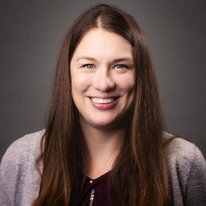Biochar is a charcoal-like substance produced by the thermal decomposition of biomass. Long utilized as a soil amendment for its moisture retention properties and stable carbon content, biochar has recently gained substantial attention as a novel stormwater filter material. Numerous studies have demonstrated the utility of biochar to treat a broad array of contaminants; including nitrogen, phosphorus, heavy metals, pathogens, organic carbon, and organic contaminants. While the literature demonstrates a striking understanding and ability to control and tune these removal processes at the laboratory scale, application at the field scale has resulted in challenges and mixed success. What is getting lost in translation?
This seminar will provide an overview the utility of biochar as a media amendment for enhancing contaminant removal in stormwater filtration systems. Two case studies spanning from laboratory-scale testing to mesocosm- or demonstration-scale performance evaluation will presented, which resulted in mixed success. These case studies demonstrate that biochar selection is a critical component of the design process, and warrant additional work to specify biochar properties that can indicate performance according to application-specific requirements. The seminar will conclude with a summary of lessons learned and best-practice recommendations for future applications.

Bridget Ulrich leads a research program focused on environmental chemistry at the Natural Resources Research Institute (NRRI) in Duluth, MN. Dr. Ulrich is a Minnesota native and grew up on the Iron Range in Virginia, MN. Her educational background includes a bachelor’s degree in chemical engineering from the University of Minnesota Twin Cities, and a PhD in Environmental Engineering from the Colorado School of Mines. She joined NRRI in 2019 following postdoctoral work at the Swiss Federal Institute for Aquatic Science and Technology (Eawag) in Zurich, Switzerland. Her group specializes in combining interdisciplinary insights from environmental engineering, analytical chemistry, and materials science to evaluate contaminant fate and transport in natural and built aquatic systems.